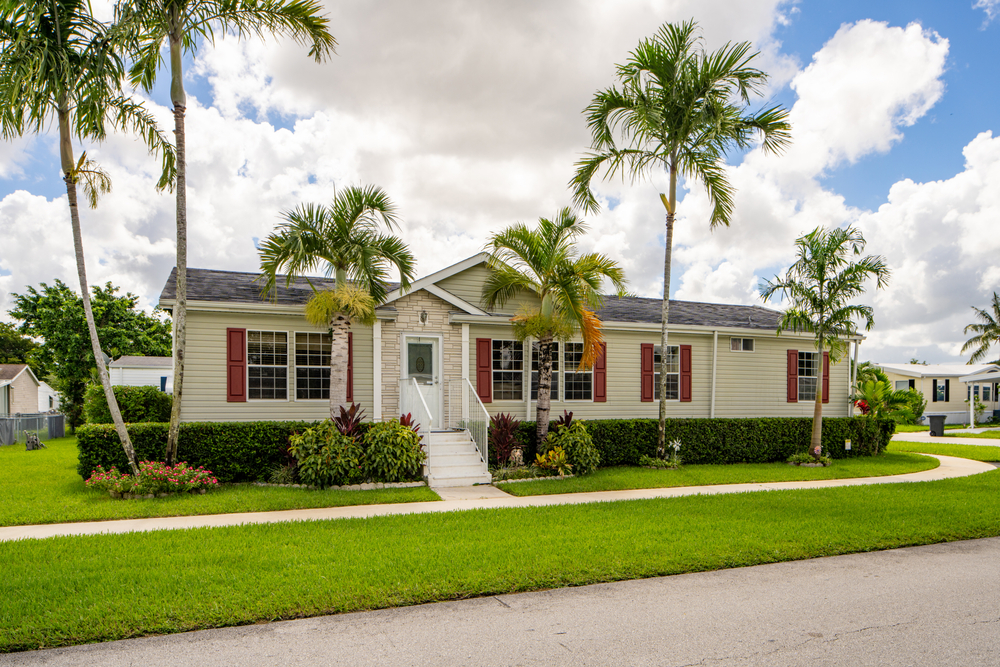When it comes to investing your money, there are certain risks involved that–if mitigated properly–can lead to even better rewards. The real estate market is no exception to this rule, a secret that is decidedly out for Gen X individuals, and even some lucky Millennials. With the right guidance and some fortitude, Gen Z will likely follow suit, with over 40% expressing interest in homeownership in the next five years (via YahooFinance). But how does one decide on the best places to invest in real estate when it comes to making these significant financial decisions?
In this article, we will walk you through what to look for in a real estate property–including ways to locate hotspot areas likely to rapidly develop–both in the United States and abroad. Ideally, by the conclusion, you will feel a little more confident about stepping closer to making a real estate investment–whether locally, remotely, or digitally, as with industry-leading companies like Ark7.
New to passive real estate investing?
Explore Ark7 OpportunitiesWhat Makes A Real Estate Market Attractive For Real Estate Investors?
While every investment property is unique, there are certain features that can elevate a proposed investment opportunity to a desirable “must have” opportunity–or, conversely, that can drop it into the “I think I’ll pass and live to fight another day” category. So, how do we measure a property’s opportunities for growth and maximizing your Return on Investment (ROI)? Here are some of the top factors to keep in mind when it comes time to make a purchase, whether you’re looking at commercial properties, rental properties, or residential ones.
Strong Job Market and Low Unemployment
When looking into the world of real estate, you would be hard pressed to find anyone who may be looking to buy a house who is without steady income or a source of money for mortgage payments. This is just one way in which real estate investing is directly tied to the local job market; if the area presents a strong economy with few citizens dropping into the unemployment zone, you are more likely to attract the kinds of renters (or buyers) that present reliability and steady cash flow as a real estate investor.
Look for areas that attract young professionals with exciting employment opportunities, and research what the economy is based on in the location you are interested in–whether that be eCommerce or finance, tourism, port activity, natural resource management, or other job market sectors. Put yourself in a prospective buyer’s shoes–or a renter, for that matter–and ask yourself: Why would someone want to live in this area? Are there opportunities for growth? Is it a stable real estate market offering affordable housing? Will families move here? Military? Young professionals? Will tourists want to come visit? Etc.

Growing Population
Population growth is one vital way of “taking the temperature” of a prospective real estate market “hotspot”–i.e. someplace that is projected to grow, increasing home values. It is best to invest in an area that hasn’t had a population explosion yet, as the properties are still relatively affordable; so for this, it is best to look at the cities that are in the process of developing still that are predicted to boom in the years to come. Cities predicted to experience rapid growth include Austin, TX, Raleigh, NC, and Orlando, FL, to name a few (via ExplodingTopics).
And it’s not enough to simply look at the rate of population growth in a specific locale; be sure to investigate the dominant demographic in the area so you can better understand the type of tenant or buyer likely to be drawn to your investment property. For example, are look into the school districts in the area; is your property palatable to young families looking to put their children through quality schools? Maybe the area is mostly made up of individuals over the age of 50. If that is the case, what would make your investment a good place to retire, or to visit seasonally?
As an example, Austin, Texas is one of the fastest growing cities in the United States at a rate of nearly 26% (from ExplodingTopics). Look for cities with a population growth rate of at least 10%, as these are more likely to present a sizable Return on Investment and secure a property that will appreciate with time rather than depreciate–just what you want in an real estate investment!
Tourist Destination
Rental properties are smart investments not only for those looking to rent the premises to commuters, young professionals, military families, and more–but also in attracting tourists. To do so, look for rental properties that are in an attractive location, or one that is near local tourism activities, public transportation, major highways, shopping centers, etc.
The more palatable your rental properties are, the higher the rental demand, which not only means more money in your pocket as time wears on–but also more reliable, steady rental income, especially during your local tourism season.
Investment Opportunities in Revitalizing Neighborhoods

This brings us to our next point: looking for relatively affordable housing market opportunities in neighborhoods that are on the “up and up.” This provides an affordable housing market compared to investment opportunities like those in an already thriving business community, suburb, or retail space–and these lower-cost investments may surprise in time with their high-value rewards as the area around them continues to develop and appreciate in value.
These revitalizing neighborhoods may look less attractive at face value, but with a little research and a bit of luck, real estate investors can land a high-value property for quite cheap that has great long-term potential. What’s more, properties in this low-demand areas may come with lower property taxes as a means of attracting buyers to the area–which is something to keep in mind when budgeting for your big investment (via Investopedia).
While taking a chance on lower-demand neighborhood properties can seem scary, especially for first-time real estate investments, they can pay off in the long term if you are willing to maintain the property in such a way that adds value to the neighborhood and attracts other mindful buyers to the area.
High Value Homes and Rental Properties
Of course, you can always take the opposite approach and opt for the safer, already-high-value-property that already commands high rental demand. This type of rental property often attracts local real estate investors looking to close an easy sale–but these high-value homes may come with higher property taxes in addition to a higher rental demand.
These types of homes and rental properties are generally already in good locations–near schools, economic hubs, transportation centers like airports or public transport lines, or local attractions like beaches, parks, museums, and more. But does this mean these types of rental properties make the best places to invest in real estate?
When it comes to high-value homes, it’s best to consider factors like population growth potential in the area, the value of both residential and commercial properties in the area, rental demand, whether or not the area is supported by a robust job market, whether or not the property offers affordable housing for the likely demographic you are looking to attract, and more. Property prices may not be reflective of the cost of living for the average American family, so take high value rental property opportunities with a grain of salt.
One distinct positive aspect of investing in a high-value neighborhood is that your rental property insurance is likelier to be lower, and, while you will likely experience a strong rental demand, you will also most likely have to contend with higher property taxes.
Affordable Cost of Living
While it can be tempting to throw money at a high-value property, it’s important to keep in mind–especially for rental properties–what the cost of living will be compared to the median household income in the area. For example, if the area’s median household income is $30,000 but the monthly rent averages around $3,500, that may not be affordable for the average tenant in the area. This could mean that real estate investors may have issues hanging on to quality tenants, attracting long-term tenants, and ensuring maximum ROI by ensuring their rental properties are constantly rented out and constantly creating positive cash flow.
Favorable Tax Rates
Especially if you have the luxury of making a remote real estate investment, look for parts of the world or country that will offer real estate investors a favorable tax environment. For example, Florida has an average real estate tax rate of 0.80%, which is well below the national average of 0.99% (from SmartAsset). As you may have guessed, this means you will be paying less in taxes each year on a property in Florida than one of the same size in, say, New Jersey, where the rate is nearly 2.5% (via WalletHub).

Favorable Tax Benefits
There may even be tax incentives in your desired niche, making real estate investing all the more palatable for investors. Look for tax benefits in a state offering more than the national average. For more on your tax benefit qualifications, check out this resource from Forbes.
Thriving Tourism Industry and Agreeable Airbnb Legislation
Of course, a humming tourism economy is not all you’ll need in order to rent out your real estate investment to visitors. When it comes to short term rental properties, you’ll want to check on your area’s local airbnb legislation as well. Real estate investors should be sure of their rights and entitlements on the proper side of the law in order to protect themselves from issues with state and federal entities, as well as troublesome tenants.
As an example, we can look to Hawaii–clearly a popular tourist destination due to its tropical climate, gorgeous beaches, culture, food, music, and more. Hawaii seems like a prime place to invest in real estate, particularly for a short term rental property–right?
It turns out the truth is a little more complicated. Because of the incredible success real estate investors saw in renting out their property for tourists through Airbnb, local real estate investors, hotels, and resorts were having a hard time competing with the local market. While people were scrambling to buy rental properties in the area to hop on the Airbnb platform, luxury resorts were having a hard time keeping up with the affordable cost and competitive locations of these short-term rentals, making it very much a buyer’s market.
Since then, legislation was passed to protect the resorts, which are an integral part of the Hawaiian economy, and now it is illegal to rent out an Airbnb within business and tourism districts (via Hawaii Vacation Guide).
In short, when it comes to seeing an investment through, whether you’re looking at the single family rental market or short-term rentals for a thriving tourism industry, it’s best to know your local legislation and understand how it impacts your wallet.
Proximity to Travel Hubs, Public Transportation, and Airports
In selecting a location for your property investment, look for areas with a high rental demand. One simple way to do this is to look for land or housing near airports, oceans, ports, major highways, public transport systems, and other means of getting around. This is not only likely to purport a strong job market and a diverse and robust economy (due to the flow of people and therefore finances in the area), it is likely to make your property an attractive option for those who need or want to commute or travel frequently.
Waterfront Property or Beachside
Real estate investors drool at the thought of waterfront property. This is because property prices are relatively high–but so is value–and the people that are willing to pay for this luxury are often willing to pay quite a bit, especially depending on the location.
According to HomeLight, lakefront property values can increase at a national average between $50,000 and $100,000, depending on local housing market trends. And that’s just for lakes–both manmade and natural, with a variety of different waterfront accessibilities, qualities of view, and water statuses. For beachfront locations, property values can skyrocket as much as 68.3% of the property value or more, if the location is less than 0.1 miles from the ocean or offers an unobstructed view (via Collateral Analytics).

How to Choose the Best Places To Invest In Real Estate in the U.S.
Choosing the best places to invest in real estate in the United States is a crucial step towards a successful and profitable investment venture. The country offers a diverse range of markets with varying economic conditions, population trends, and rental demands. Whether you’re a seasoned investor or a first-time buyer, thorough research and careful consideration of key factors can help you make informed decisions and maximize your returns. In this article, we will delve into a comprehensive guide on how to choose the best places to invest in real estate in the United States.
- Economic Indicators and Job Market:
One of the fundamental factors to consider when selecting a location for real estate investment is the local economic health and job market. A robust and diversified economy usually indicates stability and growth potential. Look for cities with increasing employment opportunities and a variety of industries, as they are more likely to maintain stable demand for housing and attract potential tenants.
- Population Growth and Demographics:
Population growth is a significant indicator of a city’s real estate potential. Cities with increasing populations tend to experience higher demand for housing, leading to appreciation in property values and potentially higher rental income. Additionally, consider the demographics of the area, as certain age groups or professions may have specific housing needs and preferences.
- Rental Demand:
Assess the local rental market to understand the demand for rental properties in the area. Factors such as a strong job market, population growth, and limited housing supply can contribute to a healthy rental market. Research the vacancy rates, rental price trends, and tenant demographics to gauge the potential for steady rental income.
- Market Affordability:
Investigate the affordability of the local real estate market. Analyze the average home prices, rental rates, and property taxes in the area. A more affordable market may attract a larger pool of renters and buyers, enhancing the demand for rental properties and increasing the potential for long-term appreciation in property values.
- Infrastructure and Development:
Consider the city’s investment in infrastructure and development projects. Improvements in transportation, schools, healthcare facilities, and other amenities can enhance the quality of life and attract residents, making the area more appealing for potential tenants and investors alike.
- Real Estate Regulations and Taxes:
Examine the local real estate regulations and tax policies. Certain areas may have more landlord-friendly laws and lower property taxes, making them more attractive for real estate investors. Conversely, unfavorable regulations and high taxes can add significant costs and risks to your investment.
- Neighborhood Analysis:
Don’t overlook the importance of neighborhood analysis. Within a city, different neighborhoods may offer distinct opportunities and challenges. Evaluate factors such as safety, proximity to public transportation, schools, shopping centers, and job centers. Additionally, consider the future growth potential of the neighborhood, as emerging areas may offer higher appreciation rates.

- Market Liquidity:
Liquidity refers to the ease with which you can buy or sell a property in a particular market. More liquid markets typically have a higher number of buyers and sellers, making it easier to enter or exit an investment. This factor is essential to consider, especially if you plan to sell the property in the future.
- Local Amenities and Attractions:
Consider the amenities and attractions in the area, as they can influence the demand for rental properties. Cities with cultural attractions, outdoor recreational opportunities, and a vibrant social scene tend to attract more residents and tourists, leading to higher rental demand.
- Rental Property Type:
Decide on the type of rental property you want to invest in, whether it’s single-family homes, multi-family properties, condos, or commercial real estate. Different property types have varying demand and appreciation potential in different markets.
- Market Cycles and Timing:
Understand the real estate market cycles and the timing of your investment. Real estate markets are cyclical, with periods of expansion, stagnation, and contraction. Entering the market at the right time can significantly impact your returns.
- Employment Diversity:
Cities with diverse employment opportunities and multiple major employers are generally more resilient to economic downturns. Diverse job sectors can help mitigate the risks associated with investing in a single industry-dependent market.
- Rental Regulations:
Familiarize yourself with the local rental regulations, including tenant rights, rent control laws, and eviction processes. Rental regulations can significantly impact your ability to manage and profit from your investment property.
- Real Estate Market Data and Analysis:
Utilize real estate market data and analysis tools to make data-driven decisions. Many websites and platforms provide comprehensive data on property prices, rental rates, market trends, and economic indicators.

How To Choose the Best Places To Invest In Real Estate In The World
- Thriving Global Economy:
A thriving global economy is a crucial factor to consider when choosing international real estate investment destinations. Look for countries with stable economic growth, low inflation rates, and a favorable business environment. Stable economies are more likely to support a growing real estate market with potential for appreciation in property values.
- Tourism Potential:
Tourism can be a significant driver of real estate demand and rental income. Countries with attractive tourist destinations, historical landmarks, and cultural attractions tend to experience high demand for short-term vacation rentals and long-term rentals catering to expatriates and international workers.
- Political Stability:
Political stability and a supportive legal system are essential for long-term real estate investments. Avoid countries with frequent political turmoil or uncertain legal frameworks, as these factors can negatively impact property rights, rental income, and overall investment security.

- Infrastructure and Public Transportation:
Strong infrastructure and an efficient public transportation system are indicative of a well-developed urban environment. Locations with modern transportation networks make commuting convenient and attract both residents and tourists, positively influencing real estate demand.
- Natural Attractions:
Proximity to natural attractions, such as beaches, mountains, lakes, or forests, can enhance the desirability of a location. Properties with scenic views and recreational opportunities often have higher appeal to both investors and renters.
- Real Estate Market Trends and Indicators:
Analyze the real estate market trends and indicators in the target country or city. Look at historical property price trends, rental yields, occupancy rates, and overall market dynamics to understand the investment potential and risks.
- Foreign Ownership Regulations:
Be aware of foreign ownership regulations in the country where you intend to invest. Some countries may have restrictions on foreign ownership of real estate or require special permits for non-citizens to own property.
- Tax Implications:
Understand the tax implications of owning and renting out properties in the target country. Consider factors such as property taxes, capital gains taxes, rental income taxes, and any applicable tax treaties between your home country and the investment country.
- Cultural Compatibility:
Familiarize yourself with the local culture and customs of the investment location. Cultural compatibility can influence the ease of conducting business and managing the property, as well as the overall experience for tenants and guests.
- Market Liquidity:
Consider the market liquidity of the real estate market in the country. A more liquid market allows for easier buying and selling of properties, providing flexibility for investors who may want to divest their holdings in the future.
- Economic and Political Risk:
Assess the economic and political risk of the target country. Factors such as currency fluctuations, inflation, trade policies, and international relations can affect the stability and profitability of your real estate investment.
- Sustainability and Environmental Concerns:
Increasingly, investors are considering sustainability and environmental factors when choosing real estate investments. Locations with eco-friendly initiatives and a commitment to environmental protection may offer long-term advantages in terms of property value and tenant appeal.

10 Best Places to Invest in Real Estate for Long Term Rentals in 2023
- Austin, TX:
Austin, Texas, stands out as one of the hottest real estate markets in the country. With a dynamic economy driven by the technology sector and a thriving cultural scene, Austin attracts a diverse and educated workforce. Its population growth has been consistently strong, contributing to the demand for rental properties. Additionally, Austin’s stringent zoning regulations and limited land availability have led to steady appreciation in property values, making it an ideal location for long-term real estate investments.
- Midland, TX:
Midland, Texas, owes its real estate potential to its position as an oil and gas hub in the Permian Basin. The city’s economy heavily relies on the energy sector, which can be cyclical, but ongoing development projects and strategic location contribute to the demand for long-term rentals. Investors must consider the energy market’s volatility when making investment decisions in Midland.
- Boulder, CO:
Boulder, Colorado, attracts residents with its stunning landscapes, outdoor recreational opportunities, and high-quality education institutions. The city’s strict zoning laws limit housing supply, resulting in a consistent demand for rentals. While Boulder’s real estate market may be competitive, its long-term appreciation potential makes it an attractive destination for investors seeking stable returns.

- Fort Collins, CO:
As a sister city to Boulder, Fort Collins, Colorado, offers a more affordable real estate market while still enjoying similar economic strengths. Home to Colorado State University, the city’s steady student population ensures a reliable tenant pool for investors interested in the long-term rental market. Fort Collins’ appeal to outdoor enthusiasts and its proximity to Denver further enhance its investment attractiveness.
- Richland, WA:
Richland, Washington, is part of the Tri-Cities metropolitan area and is known for its proximity to the Columbia River and the Pacific Northwest National Laboratory. The city’s stable job market and affordability have contributed to its growing real estate market. With ongoing infrastructure development and a strong sense of community, Richland presents an excellent opportunity for long-term rental investments.
- Rapid City, SD:
Rapid City, South Dakota, thrives on its strong tourism industry, low unemployment rate, and affordable living. As the gateway to the Black Hills region and Mount Rushmore, the city sees a steady influx of visitors, contributing to rental demand. The relatively stable real estate market and economic growth potential make Rapid City an enticing destination for long-term real estate investments.
- Odessa, TX:
Odessa, Texas, also benefits from the oil and gas boom in the Permian Basin. The energy industry significantly influences Odessa’s economy and real estate market. While the energy sector’s volatility should be taken into account, the city’s efforts to diversify its economy and invest in infrastructure suggest potential for stable long-term rental demand.
- Dallas, TX:
As a major metropolitan area in Texas, Dallas offers a diverse and dynamic real estate market. Its robust job market, driven by various industries such as energy, healthcare, and technology, ensures a steady demand for rentals. Dallas’ size and diversity provide investors with various investment opportunities catering to different rental demographics.
- San Antonio, TX:
San Antonio, Texas, is known for its rich history, cultural attractions, and growing job market. The city’s real estate market has seen steady growth, offering a relatively affordable cost of living compared to other major Texas cities. San Antonio’s strong military presence, medical sector, and tourism industry contribute to its rental market’s stability and long-term potential.
- Houston, TX:
Houston, Texas, as the fourth-largest city in the United States, offers a diverse and dynamic real estate market. Its robust job market, driven by industries such as energy, healthcare, and technology, ensures a steady demand for rentals. The city’s size and diversity provide investors with various investment opportunities, catering to different rental demographics.

Long Term Real Estate Appreciation
Long-term real estate appreciation refers to the increase in the value of a property over an extended period, typically spanning several years or even decades. This form of investment aims to capitalize on the gradual growth of the real estate market and the overall economy. Investors looking for stability and potential wealth accumulation often opt for long-term appreciation, as it offers the possibility of significant returns without the risks associated with short-term market fluctuations.
On the other hand, short-term rental potential focuses on generating immediate income through short-term rentals, such as Airbnb or vacation rentals. This strategy leverages the high demand for short stays, particularly in popular tourist destinations or cities with events and festivals. While short-term rentals can yield higher cash flow compared to traditional long-term rentals, they come with increased management responsibilities and may be influenced by seasonal fluctuations and external factors like travel trends and economic changes. Investors seeking regular cash flow and the flexibility to use the property themselves may find short-term rental potential appealing.
Ultimately, the choice between long-term real estate appreciation and short-term rental potential depends on an investor’s financial goals, risk tolerance, and time horizon. Diversifying a real estate portfolio with a combination of both strategies can offer a balanced approach, providing both steady appreciation and periodic cash flow opportunities.
15 Best Places to Invest in Real Estate By Analyzing the Market
- Reno, Nevada:Reno’s real estate market has been on an upswing due to its affordable housing options and strong economic growth. The city’s proximity to Lake Tahoe and its emergence as a tech and innovation hub contribute to increased demand for both homebuyers and investors.
- Raleigh, North Carolina:Raleigh’s thriving job market, fueled by its status as a technology and research hub, attracts a steady stream of newcomers. With a diverse economy, a growing population, and a relatively low cost of living, the city offers favorable conditions for real estate investment.
- Spokane, Washington:Spokane’s real estate market benefits from its natural beauty, outdoor recreation opportunities, and relatively affordable housing. The city’s stable economy and growing healthcare and education sectors make it an appealing option for investors seeking long-term appreciation.
- Houston, Texas:Houston’s strong job market, fueled by the energy sector and diverse industries, contributes to the city’s real estate appeal. Affordable housing options and a large population base support steady rental demand and the potential for appreciation in property values.
- Chicago, Illinois:Chicago’s diverse economy, world-class amenities, and cultural offerings make it an attractive real estate investment location. Despite facing some challenges with population decline and fiscal issues, certain neighborhoods continue to see growth and potential for investors.
- Toledo, Ohio:Toledo’s real estate market benefits from its affordable housing and steady rental demand. The city’s strategic location, with access to major highways and the Great Lakes, enhances its appeal to investors seeking stable cash flow.
- Austin, Texas:Austin’s real estate market has been booming due to its rapid population growth, strong job market, and vibrant culture. The city’s limited housing supply and high demand create a competitive market, offering potential for long-term appreciation.
- Columbus, Ohio:Columbus’s steady economic growth and diverse industries attract young professionals and families, driving housing demand. With a relatively affordable cost of living and ongoing development projects, the city offers promising investment opportunities for real estate investors.
- Boise, Idaho:Boise’s rapidly expanding economy, outdoor recreational opportunities, and a growing tech industry contribute to its real estate market’s strength. Low housing inventory and high demand have led to increased home prices, making it an attractive market for investors.
- Orlando, Florida:Orlando’s booming tourism industry, warm climate, and diverse job market make it a popular real estate destination. Investors can capitalize on short-term rental demand due to the city’s popularity as a vacation destination.
- Tampa, Florida:Tampa’s growing population, expanding job opportunities, and attractive coastal location drive real estate demand. The city’s affordable housing market and promising economic prospects offer opportunities for long-term appreciation.
- Boulder, Colorado:Boulder’s picturesque landscapes, outdoor activities, and strong education sector make it a sought-after real estate market. Limited land availability and strict zoning regulations contribute to the city’s steady appreciation in property values.
- Colorado Springs, Colorado:Colorado Springs offers a high quality of life, a strong military presence, and affordable housing options. The city’s growing technology sector and recreational attractions make it an appealing option for real estate investment.
- Los Angeles County, California:Los Angeles County’s diverse economy and global appeal drive real estate demand. While the high entry cost may present challenges, the region’s strong rental market and appreciation potential continue to attract investors.
- Miami, Florida:Miami’s international allure, vibrant culture, and robust tourism industry contribute to a buoyant real estate market. The city’s luxury market and short-term rental potential make it a favorite among investors seeking high returns.
Best Market for Short-Term Property Rentals (i.e. Airbnb)
15 Best Airbnb Locations in the U.S.
- Washington DC:
Washington DC, the capital of the United States, is a popular Airbnb destination due to its rich history, iconic landmarks, and vibrant cultural scene. Visitors flock to the city to explore the Smithsonian museums, tour the White House, and experience the political center of the nation.
- San Francisco, CA:
San Francisco’s unique charm, including the Golden Gate Bridge, Alcatraz Island, and diverse neighborhoods, make it a sought-after Airbnb location. Visitors enjoy the city’s culinary scene, arts, and the opportunity to explore Silicon Valley.

- Phoenix, AZ:
Phoenix’s warm climate and outdoor recreational opportunities attract tourists year-round. Airbnb properties in this Arizona city provide easy access to hiking trails, golf courses, and the scenic Sonoran Desert.
- Portland, OR:
Known for its laid-back vibe and thriving food and craft beer scene, Portland offers a plethora of Airbnb options. Visitors can explore the city’s parks, attend festivals, and enjoy the picturesque landscapes of the Pacific Northwest.
- Orlando, FL:
Orlando is a top choice for families and theme park enthusiasts, offering a wide range of Airbnb accommodations near Walt Disney World, Universal Studios, and other popular attractions.
- New Orleans, LA:
New Orleans is renowned for its lively music, distinctive cuisine, and historic architecture. Airbnb visitors can immerse themselves in the city’s rich cultural heritage and explore iconic spots like the French Quarter.
- Nashville, TN:
Music lovers flock to Nashville, the Music City, to experience its vibrant live music scene and soak up the city’s Southern charm. Airbnb rentals provide convenient access to honky-tonk bars and the Country Music Hall of Fame.
- Miami, FL:
Miami’s glamorous beaches, vibrant nightlife, and cultural diversity attract travelers from all over the world. Airbnb properties in Miami offer visitors a taste of luxury and the chance to explore the city’s art deco architecture.
- Charleston, SC:
Charleston’s historical charm, cobblestone streets, and antebellum architecture make it a favorite Airbnb destination for those seeking a glimpse of the Old South.
- Chicago, IL:
Chicago’s iconic skyline, renowned museums, and deep-dish pizza make it an attractive destination for Airbnb travelers. Visitors can enjoy the city’s waterfront, parks, and cultural events.

- Denver, CO:
Denver’s proximity to the Rocky Mountains and its outdoor activities like hiking and skiing make it an appealing Airbnb location. The city’s craft breweries and vibrant arts scene add to its allure.
- Las Vegas, NV:
Las Vegas is a world-famous entertainment hub known for its casinos, shows, and vibrant nightlife. Airbnb accommodations allow visitors to experience the excitement of the Las Vegas Strip.
- Breckenridge, CO:
Breckenridge is a popular destination for winter sports enthusiasts, offering excellent skiing and snowboarding opportunities. Airbnb rentals in Breckenridge cater to visitors seeking a cozy mountain retreat.
- Boston, MA:
Boston’s historical significance, prestigious universities, and charming neighborhoods attract travelers year-round. Airbnb options range from historic homes to modern apartments.
- Austin, TX:
Austin’s live music scene, vibrant food trucks, and festivals like SXSW make it a top Airbnb location. Visitors can experience the city’s unique culture and enjoy outdoor activities along Lady Bird Lake.
5 Best Airbnb Locations Around the World

- Fairbanks, USA:
Fairbanks, Alaska, is an exceptional Airbnb destination, especially for those seeking the Northern Lights experience during the winter months. Visitors can also enjoy dog sledding and explore the rugged Alaskan wilderness.
- Darwin, Australia:
Darwin, the gateway to Australia’s Top End, offers a unique mix of indigenous culture and natural wonders. Airbnb visitors can explore Kakadu National Park and witness the breathtaking sunsets over the Timor Sea.
- Dublin, Ireland:
Dublin’s rich history, vibrant pub culture, and literary heritage attract travelers from all over the world. Airbnb accommodations allow visitors to immerse themselves in the city’s lively atmosphere.
- Milan, Italy:
Milan is a global fashion and design capital, drawing visitors with its historic architecture and world-class shopping. Airbnb guests can explore the city’s iconic landmarks and indulge in authentic Italian cuisine.
- Hilo, USA:
Hilo, on Hawaii’s Big Island, is a paradise for nature lovers with its lush rainforests and dramatic waterfalls. Airbnb properties in Hilo offer an authentic Hawaiian experience and easy access to Volcanoes National Park.

Orlando Real Estate Trends
The real estate market in Orlando has been experiencing steady growth and high demand, especially in recent years. With a strong economy, a burgeoning job market, and a significant increase in population, the city’s housing market has seen consistent appreciation in property values. Orlando’s appeal as a top tourist destination also drives demand for short-term rental properties, making it an attractive option for investors looking for rental income. However, limited housing inventory and increasing construction costs pose challenges for homebuyers and investors alike. Overall, Orlando’s real estate market remains robust, offering a mix of long-term appreciation potential and short-term rental opportunities.
Las Vegas Real Estate Trends
Las Vegas’s real estate market has rebounded significantly since the Great Recession, with substantial growth in recent years. The city’s economy heavily relies on tourism, gaming, and entertainment, attracting a diverse range of investors and homebuyers. Las Vegas offers relatively affordable housing options compared to other major cities, making it appealing to first-time buyers and investors. However, the city’s high dependence on tourism and leisure industries exposes its real estate market to fluctuations during economic downturns. Investors should carefully assess market conditions and potential risks, but Las Vegas remains an attractive destination for real estate opportunities.
Austin Real Estate Trends
Austin’s real estate market has been one of the hottest in the United States, with rapid population growth and a thriving technology sector driving demand. The city’s diverse economy, strong job market, and quality of life continue to attract both residents and investors. While the influx of newcomers has fueled housing demand, limited inventory has led to competitive bidding and rising home prices. Austin’s real estate market shows no signs of slowing down, making it a favorable option for investors seeking long-term appreciation in value and a steady rental market. However, investors should keep an eye on housing affordability and potential shifts in the technology sector that could impact the market.
Conclusion

Sometimes referred to as “due diligence,” it clearly takes a lot of thought, time spent researching and crunching numbers, and even some luck when it comes time to invest in real estate. Residential and commercial properties alike a subject to market fluctuations and are somewhat at the mercy of the economy, the population, and the local workforce.
Investing in real estate isn’t all sunshine and roses–in fact, it can quickly become a costly mistake, if real estate investors aren’t careful. This is why it is crucial to invest in real estate only after you have done your due diligence researching and investigating the local area, its economy, attractions, median household incomes and home values, and more. This takes a significant portion of luck out of the equation and relies more on prowess of the market–a crucial characteristic of competent real estate investors.
